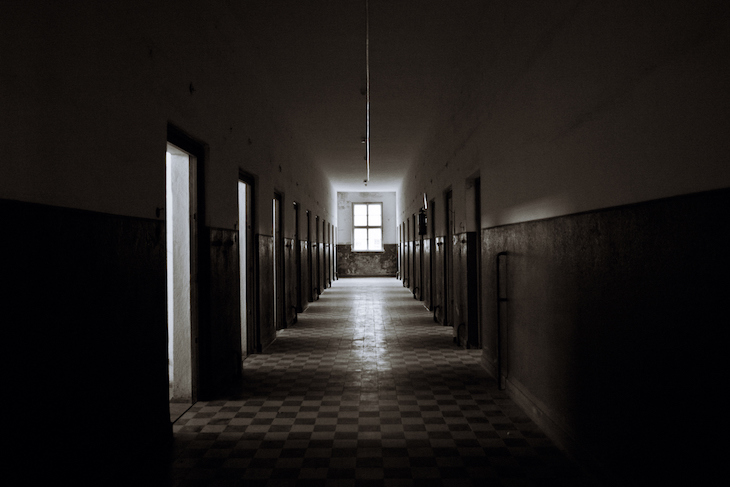When millionaires become billionaires they become even greedier and more ruthless. At the highest level, Trumpian economics can be lethal. Edward St Aubyn, in his powerful new novel Dunbar, applies the oxyacetylene brilliance and cauterisation of his prose to bear on the tragic endgame of a family’s internecine struggle for control of a global fortune. St Aubyn is a connoisseur of depravity, yet also shows he cherishes the possibility of redemption.
Henry Dunbar is an 80-year-old Canadian mogul who founded and developed the world’s second-most influential media conglomerate. His older daughters, Abigail and Megan, want the wealth and power; his youngest daughter, Florence, wants only his love. The rivalry is freakishly intense, but one can endure the horrors and enjoy the author’s stylish craftsmanship.
At first the old man’s situation seems terminally dire. The diabolically acquisitive daughters have bribed his personal physician to commit him to a supposedly secure psychiatric hospital in the Lake District. Demented and further confused by drugs, Dunbar has been incapacitated so that he should be unable to resist the final quashing of his authority by a hostile takeover at an imminent board meeting in New York. Surprisingly, however, Dunbar’s hospital roommate, Peter Walker, an alcoholic comedian with a multifaceted personality disorder and voices to match, proves to be providentially sympathetic and resourceful.
‘I really did have an empire, you know,’ said Dunbar. ‘Have I ever told you the story of how it was stolen from me?’
‘Many times, old man, many times,’ said Peter dreamily, who is moved not to achieve justice in big business but to contrive their escape to the nearest bar. Dunbar, as instructed, spits out his medication and follows Walker out through the kitchen’s back door. They find a vehicle suitable for rugged terrain, with the ignition key conveniently in place. Dunbar’s captors have confiscated all his credit cards, except one he managed to hide, a card for a Swiss account with unlimited credit. The alcoholic, having served his narrative function, is recaptured and kills himself. Dunbar is then free for a lonely, dangerous escape in the snow, pursued by hospital guards.
Dunbar is saved from frostbite and collapse by a tramp, a defrocked vicar who was ruined by Dunbar’s newspapers. ‘When he had been running a global empire, his cruelty and his vindictiveness and his lies and his tantrums were disguised as the necessary actions of a decisive commander-in-chief, but in his current naked condition the naked character of these actions screamed at him, like ex-prisoners recognising their torturer in the street.’ An Aubynesque simile can brighten a grey passage: ‘A gaudy sunset, like a drunken farewell scrawled in lipstick on a mirror.’
But the overall focus, satisfactorily, is on contemporary social pathology and Dunbar’s moral transcendence. Most of the novel is harsh; all of it is entertaining.






Comments